In response to this, John Lewis – one of the biggest and most successful retail giants in the UK, and a well-respected brand name – has revealed that it will build and furnish private rental properties.
Until now known best for its high-end department stores, ownership of Waitrose, unique company structure (all employees are shareholders and receive a yearly bonus) and increasingly ambitious and high-cost Christmas adverts, John Lewis – founded in 1864 – says it has a long-term target to secure 40% of its annual income from non-retail activities.
The company will work with developers to build new homes on up to 20 sites already owned by the partnership to provide a ‘stable income’. Planning applications are anticipated for two sites next year in Greater London.
The properties will fall under the Build to Rent category, and are likely to be managed by an established lettings company, while the furniture in the properties will come from John Lewis stores, with food delivery options for tenants on offer from Waitrose.
“We’re creating new inspirational services for customers where strong ethical values and peace of mind matter, like reusing and recycling products, personal savings and rented housing,” Nina Bhatia, executive director of strategy and commercial development at John Lewis, said.
Will other major retailers now be looking to take a similar path?
An oversupply of retail space
Matthew Pullen, chief executive of APO, a specialist residential management company, says it was pretty clear even before Covid-19 struck that changing consumer behaviour is leading to too much retail space in the UK.
“For the owners of that space, the challenge is replacing the stable long-term income generated by retail leases with something else, and one of the biggest takeaways from Covid-19 will undoubtedly be the resilience of residential income,” Pullen says. “Whilst retail rents have been struggling, landlords have consistently reported residential rent collection rates of 95%-plus. We’ve therefore been seeing increasing interest from the owners of retail property in the potential value that a switch to residential could add.”
Pullen, who has been at the forefront of the UK’s BTR housing revolution with his leadership of be:here, Be Living and, most recently, as EcoWorld’s Chief Operating Officer, admits there may be difficulties when it comes to converting retail buildings into residential housing.
“The vast majority of shopping centre buildings are not well-suited to conversion, but the sites on which they sit are often under-utilised with low-rise buildings and external car parking,” he says.
“It can often be possible to re-provide retail space beneath much taller residential buildings, making much more effective use of the land.”
As an example, he points to a town-centre site that APO is currently working on where, in addition to re-providing space for an existing supermarket, the firm will be adding more than 1,750 homes.
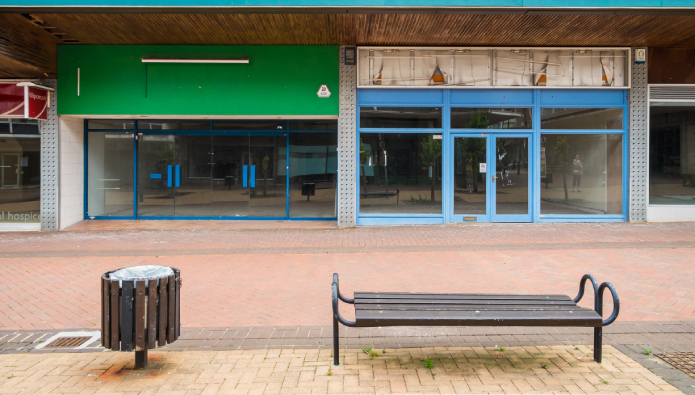
“Of course, this sort of major redevelopment takes time to get right, with a minimum period of 12 months to design the scheme and secure planning consent, but we work with developers who will fund the associated costs so the property owners don’t need to.”
He says John Lewis is in an unusual position because not only is it a retailer with a particular focus on the home, but it is also the owner of retail property and provider of a wide range of home-related services from food delivery to insurance.
“Becoming a residential landlord has the potential to enhance returns from its property assets, but at its core John Lewis is a retail brand and retail is of course a firmly product-focussed business,” Pullen adds. “Our research points to the future of rented homes becoming increasingly experience-led, focussing on enhancing living experience through service, flexibility, convenience and community.”
In a city like London, he says, the majority of those renting apartments are millennials, more naturally drawn to membership and subscription brands like WeWork, Spotify and Uber.
“Reinventing a strong and well-established retail brand to appeal to this market risks confusing perception of the core business. Managing a rental community requires a particular set of skills and experience to do well, so I would always recommend working with an established specialist management partner instead of trying to bolt this on to a retail business.”
Build to Rent, in particular, could appeal to major retailers struggling to stay afloat in their primary market because of the strength of residential rents.
“Historically, residential rents have risen over time in line with inflation, and barely fell even after the global financial crisis. This makes them hugely attractive to the sort of institutional investors that have, in the past, focused on retail property. In particular, the sector suits pension funds looking to back-off inflation-linked annuity liabilities, which is creating significant demand.”
The growth of the sector in the UK until now has been constrained by the fact that a residential block with 300 individual tenants living on site is far more difficult to manage than an office building with a smaller number of commercial tenants on long-term leases.
“If you look over at the US, the sector has been well-established for 30 years and landlords have a range of experienced operators to choose from,” Pullen says. “That’s not the case in the UK. Now that’s happening, the sector looks set for a significant influx of investment over the next five years.”
But will the current major institutional investors involved in the BTR market, such as Legal & General, Invesco and Quintain, feel a bit put out by the likes of John Lewis muscling in on their territory? Pullen doesn’t believe so.
“Current institutional investment in UK residential property is only estimated to be around £40 billion in total, but that’s forecast to rise to over £500 billion as the market matures. Given that scope to grow, most investors are unlikely to be too concerned about new landlords entering the market, and more likely to see good-quality competitors joining as a positive step in helping the sector grow.”
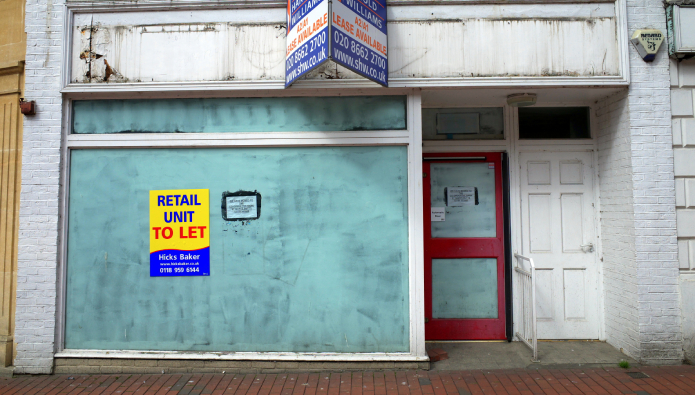
Pullen also thinks there could be opportunities for tie-ups or joint ventures between major retailers looking to generate income and established BTR investors who already know the market well.
“For all of us involved in the sector, a key challenge is scaling-up in a market that’s still in its early years, so forming partnerships that can deliver at scale across multiple locations is always going to be attractive,” he argues.
“Of course, the key to any such partnership will always be getting the model right so that it creates genuine alignment – if both parties are financially motivated by creating the best living experience for residents then everybody wins.”
From retail to resi – a case study
A recent example of a successful switch from retail space to rental accommodation was achieved by Solomon Investment Partners, a platform providing exclusive UK property investment opportunities, which recently launched Danum House in the centre of Doncaster.
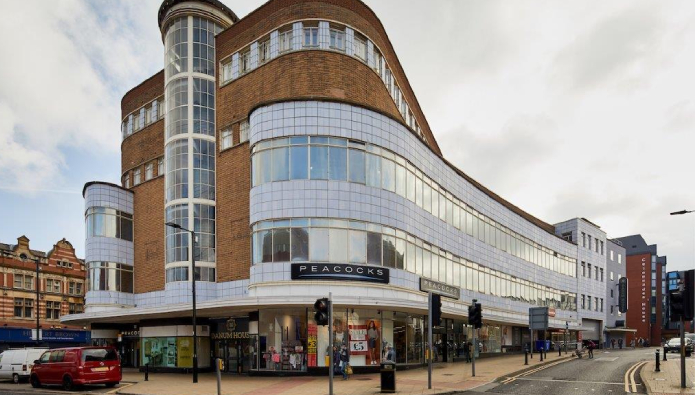
The Art Deco, Grade II-listed building, which used to be a department store, has been given a new lease of life, being transformed into 78 new apartments with roof-mounted solar panels and ‘a super-efficient water heating system’. The apartments have already been successfully sold off-plan.
Empire Property Concepts (the developer) paid £920,000 for the site, with conversion costs of £4.3 million. The development now has a GDV of £9.3 million. Originally built in 1938 for the Doncaster Co-operative Society, with a design mimicking the prow of an ocean liner, it has been converted into one, two and three-bedroom apartments, with period features such as Vitriolite tile cladding and Art Deco Critall-style, metal-framed windows kept during the conversion.

The building, formerly home to a number of retailers over the years, as well as being used as a tax office and nightclub, was designed with retail in mind, which meant there was no natural light in the centre of the building. However, lightwells were re-instated to bring the light in, having been previously covered by roofing.
The development had a cinema room in the building’s original boardroom and it was a planning condition that this had to remain, along with its Art Deco fireplace.



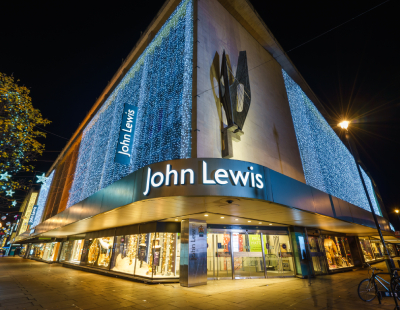




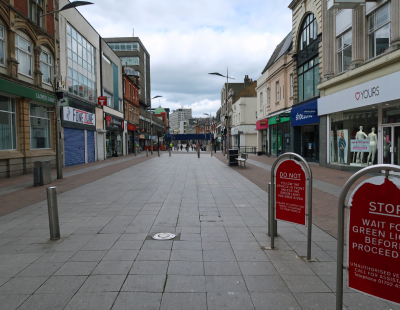




.png)









Join the conversation
Jump to latest comment and add your reply
On the face of it , it seems like a good direction to follow and assuming they manage their sites well it will offer those who like city centre locations a good quality place to live. I doubt that it will do anything to alleviate the housing crisis as I am quite certain that they are looking at the higher end of the letting market and why not?
It certainly isn't for the private sector to solve a housing crisis created by local authorities and national governments. Its for the private sector to improve and adapt to different markets and this will probably mean the less professional landlord will exit the market. However organised crime will soon step into this gap and these people aren't overly worried by legislation are they?
Spot on!
Especially regarding organised crime-it’s already widespread in U.K..
One just has to visit Prime retail units in North/Glasgow, Aberdeen/Manchester/Preston/Bradford/Leeds etc where Middle East, Africa abd EU funded organised crime money 💰is resulting in buying/selling/transferring cash from one business to another or in South East-Bucks/Southall/Berkshire/Hampshire/Surrey/London and Wales where Afghani, Qatari & Gulf underground money 💰 is spread-with buyers making cash offers of ££££££’s even for small retail units so they can start showing these as legal transactions.
You are right-these people aren’t overly worried by legislation. Even if they get caught-#racistblm, or #mentalhealth, or #religiousdiscrimination card is a sureshot escape clause in front of a judge who even if knows that the crime took place-is forced to release the criminals, as shown repeatedly in cases of recent history.
Best wishes to John Lewis and Partners teams in this plan though.
This move will save & create jobs, and hopefully help small PRS landlords & good renters by an adjustment to current unfair laws helping rogue tenants.
It will be good to see a fairness in our British justice system to help good Landlords instead of protecting rogue tenants-in both Residential and Commercial letting sectors.
Please login to comment